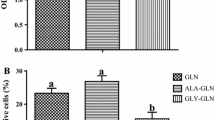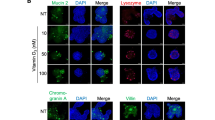Summary
Background: The body's nucleotide pool derives from three potential sources: de novo synthesis, salvage of preformednucleosides/bases or the diet. The relative contributions of these pathways of assimilation are poorly understood in vivo. Dietary nucleotides have been suggested to have beneficial effects an the development and repair of the gastrointestinal tract. Tissues with a rapid turnover, such as the gut and the immune system cells, may utilise preformed nucleotides (coming from the diet), in situation in which there is a high demand of nucleotides for nucleic acid synthesis. Therefore, nucleotides could be onsidered as conditionally essential nutrients.
Aim of the work and methods: -Development of a method to measure synthesis de novo of RNA-purine nucleotides in Caco-2 cells, relying an the incorporation of 14C-glycine into the purine ring of the nucleotide.
To establish the fractional synthesis rate of RNA purine nucleotides in Caco-2 cells, grown in culture medium containing different concentrations of glutamine, in the presence or abscence of added nucleotides.
To investigate the degree to which tissue ribonucleosides are derived from the culture medium or from de novo synthesis in the presence of different concentrations of glutamine, using undifferentiated Caco-2 cells, stressed or not by the addition of IL-1β to the medium.
Results and conclusions:The presence of high levels of glutamine in the culture medium is essential for cell proliferation (estimated by measurement of the fractional synthesis rate of purine nucleotides) and the presence of nucleotides cannot replace the glutaminedependence of Caco-2 cell proliferation. The incorporation or exogenous purine nucleotides into RNA of Caco-2 cells is rather limited, and it becomes important when cells are stressed by glutamine deprivation.
Stress by addition of interleukin-1β resulted in the maintenance or the increase in de novo synthesised RNA-purine nucleotides, even in the presence of exogenous nucleotides. However, the addition of interleukin-1β to the culture medium led to an enhanced salvage of preformed pyrimidine nucleotides for nucleic acid synthesis when glutamine was present in the medium at a concentration of 0.5 mmol/L.
Similar content being viewed by others
Author information
Authors and Affiliations
Additional information
Received: 10 December 1998, Accepted: 8 March 2000
Rights and permissions
About this article
Cite this article
Boza, J., Moënnoz, D., Bournot, C. et al. Role of glutamine on the de novo purine nucleotide synthesis in Caco-2 cells. Eur J Nutr 39, 38–46 (2000). https://doi.org/10.1007/s003940050074
Issue Date:
DOI: https://doi.org/10.1007/s003940050074




